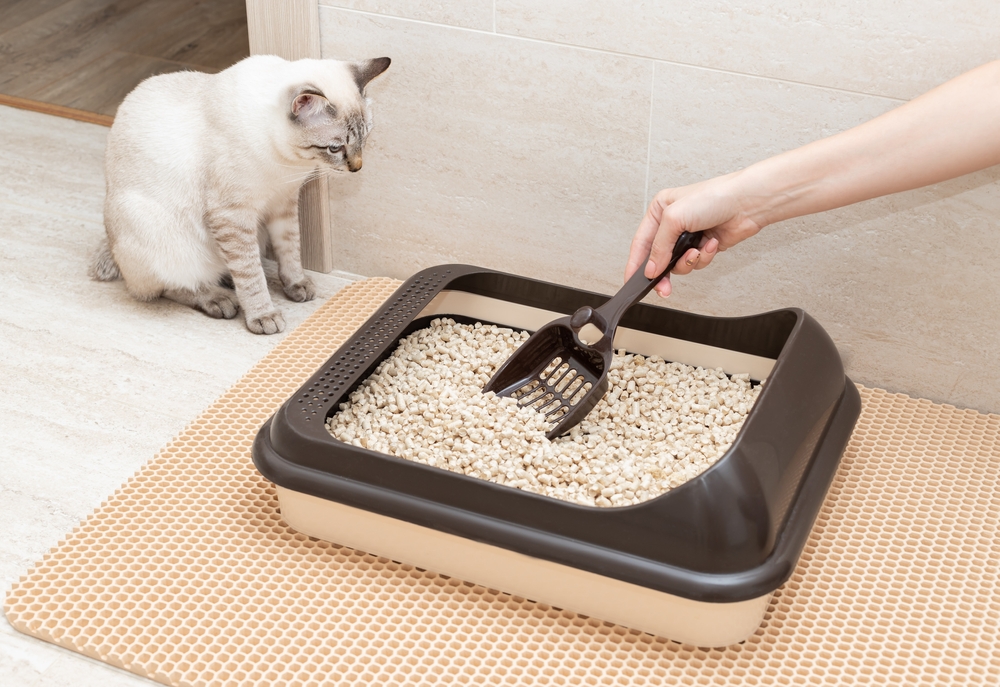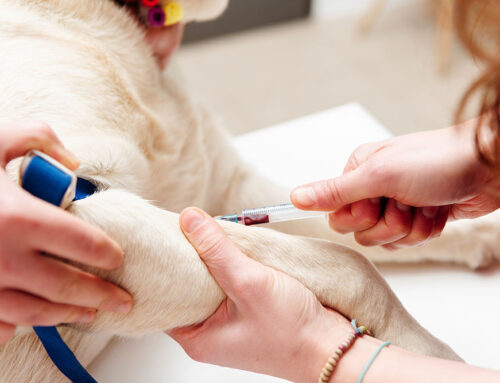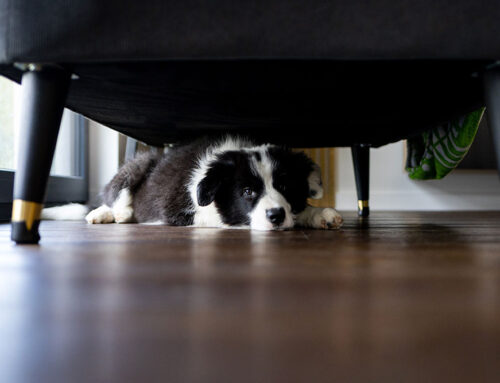Why Is My Cat Peeing Outside the Litter Box?
When your cat starts peeing outside the litter box, it can be frustrating and concerning. At East Wind Animal Hospital in Willow Grove, PA, we understand how disruptive this behavior can be, but it’s important to remember that your cat isn’t acting out of spite. In fact, inappropriate elimination is often a sign that something is wrong, either medically or behaviorally. By identifying the root cause and addressing it promptly, we can help restore peace to your home and comfort to your cat.
Medical Causes of Litter Box Problems
If your cat suddenly stops using the litter box, a medical issue may be to blame. At East Wind Animal Hospital, we frequently see cats with conditions that cause discomfort or pain when urinating. Some of the most common medical causes include:
- Urinary Tract Infections (UTIs): UTIs can cause painful urination, leading your cat to associate the litter box with discomfort. As a result, they may choose to pee elsewhere in an attempt to avoid the pain. UTIs are more common in older cats but can affect felines of any age. It’s important to catch these infections early to prevent complications, such as kidney infections.
- Bladder Stones or Crystals: These can block the flow of urine, causing significant pain and leading to accidents. In severe cases, bladder stones can become life-threatening if they result in a urinary blockage. Our internal medicine team can diagnose and treat these conditions through advanced testing and treatment options.
- Kidney Disease: Cats with kidney disease often experience increased thirst and urination, which can lead to accidents outside the litter box. This is especially common in older cats, and it’s important to catch kidney disease early to manage it effectively.
If you suspect your cat may have a medical issue, it’s crucial to bring them in for a thorough examination. Our diagnostics services include blood work, urinalysis, and imaging to help identify any underlying health problems that may be contributing to the behavior.
Behavioral Causes of Litter Box Avoidance
Not all litter box problems stem from medical conditions. In some cases, behavioral factors may be the cause. Cats are creatures of habit and can be sensitive to changes in their environment. Common behavioral causes include:
- Stress or Anxiety: Changes in your cat’s environment, such as a move to a new home, a new pet, or even rearranging furniture, can trigger stress. This anxiety may manifest as inappropriate elimination. If your cat feels threatened, they may also mark their territory with urine.
- Litter Box Preferences: Cats can be particular about their litter box setup. If the box isn’t cleaned regularly or is placed in an area they dislike, your cat may decide to go elsewhere. Make sure the litter box is in a quiet, easily accessible location, and try experimenting with different types of litter to see what your cat prefers.
- Multi-Cat Households: In homes with multiple cats, territorial issues can arise, leading to one cat blocking another from using the litter box. In these situations, it’s a good idea to provide multiple litter boxes—one for each cat, plus one extra.
If you’re unsure whether the issue is behavioral or medical, scheduling an appointment with our team can help you get to the bottom of the problem. We’ll work with you to address both behavioral and medical factors to ensure your cat’s well-being.
How You Can Help Your Cat

If your cat is peeing outside the litter box, there are steps you can take to help them return to using it regularly. Here’s what we recommend:
- Consult a Veterinarian: First, it’s essential to rule out any medical conditions. A veterinary check-up is critical if your cat is showing signs of discomfort, increased thirst, or has a history of urinary issues. At East Wind Animal Hospital, our urgent care services are available for immediate concerns, ensuring that your cat receives prompt attention.
- Adjust the Litter Box Setup: Ensure the box is clean and located in a quiet, accessible area. Some cats are very particular about their litter, so experimenting with different types and textures may help.
- Reduce Stress in the Household: If your cat’s inappropriate elimination is due to stress, identifying and minimizing the source of that stress can be helpful. This might involve giving your cat more space, creating safe zones in multi-pet households, or adding extra litter boxes.
Our team at East Wind Animal Hospital is always here to provide personalized advice and support. Whether the issue is behavioral or medical, we’re ready to help your cat feel better.
Diagnostics and Treatment at East Wind Animal Hospital
If your cat is exhibiting litter box issues, it’s important to seek veterinary care to determine the underlying cause. At East Wind Animal Hospital, our diagnostics team uses advanced testing, including blood work and urinalysis, to accurately diagnose any medical conditions that may be causing inappropriate elimination.
Our compassionate internal medicine team works closely with you to develop a treatment plan tailored to your cat’s specific needs. From addressing urinary tract infections to managing chronic conditions like kidney disease, we’re committed to providing the highest quality care.
For more information or to schedule an appointment, don’t hesitate to contact us today. We’re here to help your cat get back to feeling their best and to restore peace in your home.







Leave A Comment